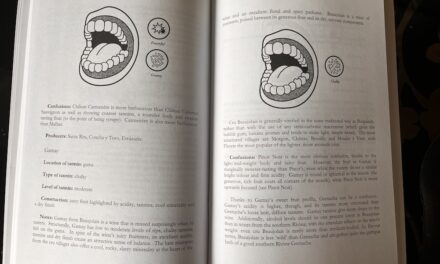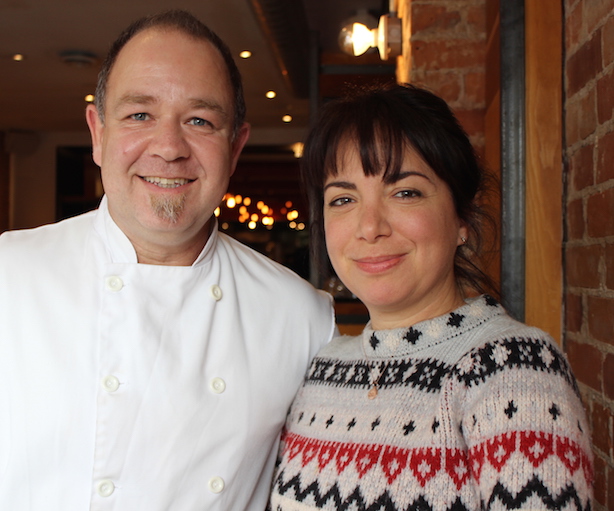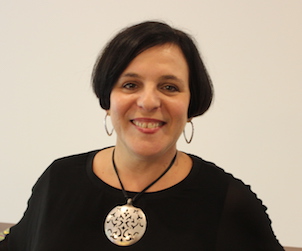By Greg Bolton
Everybody who’s familiar with The French Laundry Cookbook tends to summarize it with some variation of the following: “It’s one of my favourite cookbooks of all time. And it’s completely unusable as a cookbook.”
While Thomas Keller’s seminal cookbook is endlessly inspiring, flat-out beautiful, brilliantly written and chock-a-block with technique, only a liar or a masochist would deny that it falls a bit flat in delivering what we tend to expect from a cookbook: a collection of recipes to help you make stuff in your own kitchen.
How so?
On the one hand, if you have the technical prowess and experience to execute the dishes contained in The French Laundry Cookbook, you probably never needed it in the first place.
If, on the other hand, if you don’t have that prowess and experience, you would be wise to avoid attempting almost any recipe in the book, much in the way you might avoid buying a Ferrari to teach yourself how to drive.
The recipes in this book aren’t guidelines for making dishes. For the novice, even if followed studiously – or especially if followed studiously — they’re blueprints for endless frustration, potential humiliation, and near-certain failure.
All this is not to say that Keller is, for lack of a better word, a sadist. There’s a populist side to him, it seems. He really wants us to knock out his dishes, even offering handy microwave shortcuts to the meticulous preparations he employs in his kitchen.
But for all his many skills, Thomas Keller can’t teach just any home cook to recreate the fantastical creations he turns out at The French Laundry. Really, it’s a wonder he even ever tried.
So without disputing that The French Laundry Cookbook is indeed a very good book – one of my all-time favourites, in fact – I’ve always been left with a question that lingers awkwardly, like flatulence in an elevator: “What’s it good for?”
Thomas Keller was in Toronto this week to promote his latest release, Ad Hoc at Home – a visit hosted at the Metro Reference Library by The Cookbook Store.
I didn’t get to speak with him directly. I didn’t manage to join the line of chefs and food lovers who were able to ask him questions at the end of the engaging on-stage one-on-one with The Cookbook Store’s Alison Fryer.
Fortunately, for the polite crowd of 450 or so Torontonians, I didn’t get to ask him my question.
Fortunately for me, I didn’t have to, because he answered it, with no prompting, quite early on in the interview.
So what’s The French Laundry Cookbook good for, then?
In Keller’s own estimation, it’s certainly not a practical tool. So for those of us who’ve been frustrated by our inabilities to execute even the more basic recipes, rest assured that it’s not us, it’s him.
For good or ill – and we may wish we’d been told this earlier – The French Laundry Cookbook is not a manual but a historical record, a document that freezes a culinary moment so that, sometime in the future, we’ll be able to see what in hell Thomas Keller and his team were playing at, circa 1997, in an otherwise undistinguished little town called Yountville, California.
For Keller, the fact that he and his team managed to get it all down – and get it down so right – is of far more importance than the fact that he enabled a bazillion food nerds to try – and invariably fail – to duplicate his 27-ingredient tomato salad. (Who in hell ever heard of a salad recipe that can be found on pages 56, 57, 166, 238 and 271?)
Arriving more than 20 years later, and to similar rave reviews, Ad Hoc at Home is also a historical document, and an equally lovely one.
While it’s definitely of a piece with all of Keller’s work – there are the familiar, somewhat anal, exhortations to use parchment lids instead of regular ones, and to skim your stock almost fanatically – it’s fundamentally different in its focus.
For the home cook, I think this is a very good thing.
The French Laundry Cookbook, you see, was Keller’s answer to the question, “How do you cook?”
Ad Hoc at Home is, at last, the answer to the question, “How do I cook?”
In fact, as it turns out, there’s actually not all that much distance between the baroque creations of the French Laundry and the nice roast chicken and root veg you make at home. It’s really only a question of degree of difficulty.
At the end of the day, Keller’s latest book opens the kimono on something that was staring us in the face all along, but got lost somewhere among the recipes for tomato powder and Crèpinette de Byaldi. Thomas Keller – the mysterious alchemist whose very signature seems to be complexity – owes everything he has to alarmingly simple principles.
The first and most fundamental of these is listed, appropriately enough, on the first page of his new book.
Lest we dismiss it as one of his many idiosyncrasies – his hatred of tongs , for instance – his founding principle is offered up not as a tip, but as a mathematical equation, an iron law.
Here it is: “great product + great execution = great cooking”.
That’s it. Full stop.
While the home cook might never master what’s going on in The French Laundry Cookbook – there are simply so many components to execute well in any given recipe – that same cook can definitely master what’s presented in Ad Hoc at Home.
All that’s required is practice, diligence, and above all, determination, the quality Keller claims to value more than any other in his protégés.
“Passion is good, because it shows you care,” noted Keller. “But passion ebbs and flows. Determination trumps passion.”
That kind of no-nonsense talk permeated Keller’s entire talk. Some anecdotes:
- On the subject of his first expansion – Bouchon, a casual bistro down the street from The French Laundry – Keller noted that it arose from a mundane consideration: “I decided to open Bouchon because I love bistro food, but also because my staff and I needed a place to eat after service at French Laundry.”
- What about Bouchon Bakery, opened a little later? “We wanted to improve the quality of our bread. I mean, what else do you do?”
- Worried about maintaining quality in Yountville while he went through the process of opening his New York outpost, Per Se, he decided, on the advice of a friend, to simply close The French Laundry for six months so that he could devote his full attention to the new venture.“It cost my partners at French Laundry about $4 million,” he noted. “But it’s only money.”
- When asked to elaborate on the “culture” of French Laundry – something he’d mentioned a few times in passing – Keller spoke only of an organizational structure that he considers essential to all successful restaurants: a “tripod” consisting of dining room management, a good accountant, and a chef. (And for the record, that’s the order in which he mentioned them)
Towards the end of the talk, Keller’s steady stream of matter-of-fact, confident (but never quite cocky) patter was abruptly brought down to earth by a somewhat poignant personal anecdote. In opening Per Se, Keller had suddenly become a bi-coastal gastro-emperor, and this brought about an unexpected change in his job description:
“Once Per Se was open, I suddenly realized that I was out of a job. I’m most comfortable behind a stove – it’s warm – and I don’t really have that anymore. At 50-something years old, I’ve been working towards being a better cook my whole life. And now I’ve put myself out of a job.”
That confession floated around the room for a moment. But then Keller’s practicality muscled its way back in: the stove is great and all, he noted, but he’s already had two arthroscopic surgeries on his knees. Hustling in the kitchen is a young man’s game. It was time for him to slow things down.
And then, not quite content with what he was putting out there, he added another element: there’s a point, he said, at which you owe it to the development of the industry as a whole to take a step back, to become a manager and a mentor, to pass the torch – in Keller’s case, a powerful one of the butane variety – to the next generation of cooks.
I left the room thinking that unless I had just been completely hoodwinked, Keller’s reputation as a solitary culinary auteur – a pedantic if not entirely humourless Iron John of the stove – is largely undeserved.
By all appearances, the man is deeply collaborative and keenly aware that he’s learning as much from his team as they are from him.
His technique and skill are the envy of so many chefs. And my goodness, there were a lot of them among the faithful at the Reference Library on Monday. But humility and a genuine sense of obligation to the wider service industry – and to a broader culinary tradition – seemed even more striking than his vaunted ability to turn out plate after plate of awesome.
Trumping everything, of course, is that quiet determination.
Greg Bolton is a propietor of Pantry, Toronto’s Kitchen Cupboard: www.pantry.to.







